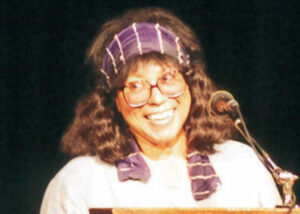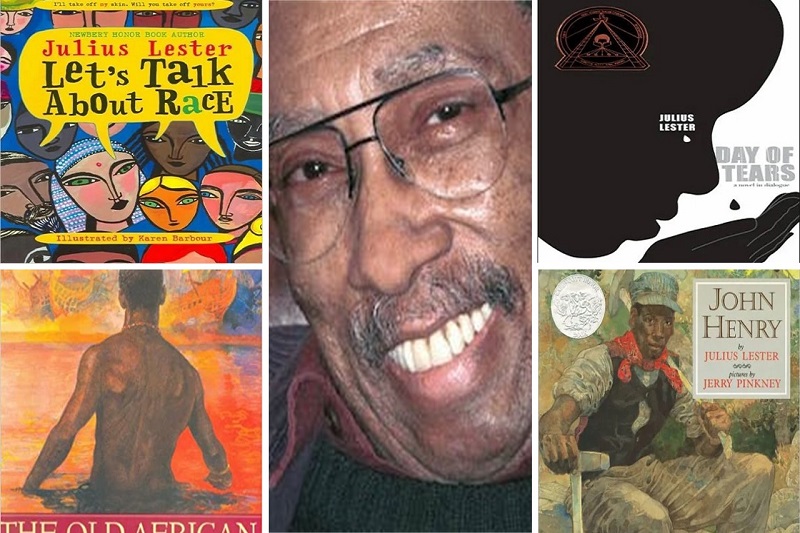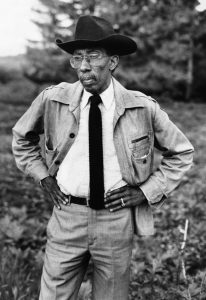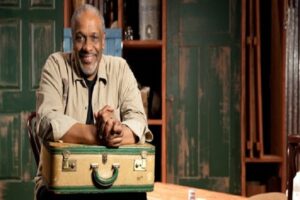
Introduction to the Inspiring Life of Author Mildred D. Taylor
Introduction You’ve probably read a few books in your lifetime. But have you ever read a book that changed your life? That’s what Mildred D.

Julius Bernard Lester was a versatile character. Besides being a renowned American author who wrote children’s and adults’ books, he worked as an academic professional (teacher) at the University of Massachusetts Amherst for more than three decades.
Moreover, Lester was also a civil rights activist, a photographer, and a musician. He recorded two albums of folk music and original songs.
Sadly, he passed away at the age of 78 on January 18, 2018, due to complications from chronic obstructive pulmonary disease (COPD).
He had a respected and illustrious career in whatever he did. Let’s look at his life story and accomplishments.
Lester was born in St. Louis, Missouri, on January 27, 1939. His father, W. D. Lester, was a Methodist minister and had married Julia Smith Lester (Julius Lester’s mother).
Lester spent much of his childhood in Missouri, but the family had to move twice because of facing southern attitudes about race and segregation before and during the Civil Rights movement. They moved to Kansas City, Kansas, in the 1940s and then Nashville, Tennessee, in the 1950s.
He completed his Bachelor of Arts degree from the Frisk University in Nashville, Tennessee, in 1960. His major subject was English, and his minor subjects were Spanish and Art.
In 1961 he moved to New York City, where he was a folk singer and a photographer for the Student Nonviolent Coordinating Committee.
During his New York years, Lester hosted a radio show called Uncle Tom’s Cabin on WBAI-FM. For two years, he also co-hosted (with Jonathan Black) Free Time, a television show on WNET-NY (Channel 13).
A good teacher is one who helps you become who you feel yourself to be. A good teacher is also one who says something that you won't understand until 10 years later.
Julius Lester Tweet
Besides working as a radio and TV host, Lester taught Afro-American history at the New School for Social Research from 1968 to 1970. Then in 1971, he started teaching at the University of Massachusetts Amherst as a visiting lecturer in the Afro-American Studies department.
In 1975 he was promoted to associate professor in the same department. With his sincere efforts and continuous struggle, he became a full professor in 1975.
In 1982, Lester converted to Judaism and published a book Lovesong: Becoming a Jew, later in 1988. He chronicled his conversion and referred to getting a lecture from the famous writer James Baldwin in his university days and mentioned that Baldwin made some hostile remarks.
Lester came into conflict with his colleagues after the launch of the book. His peer from Afro-American Studies unanimously wrote a letter to the university administration recommending that Lester be transferred to another department.
This stirred a negotiations saga involving the university’s chancellor, dean, and Lester himself. As a result, Lester was moved to the Judaic and Near Eastern Studies department and served there till the end of his teaching career in 2003.
Lester was greatly inspired by the biography of civil rights leader W.E.B. DuBois. He once described a defining moment in his life when he asked his father about their family’s history.
His father’s response left him stunned. He had replied, “Our family tree ends in a bill of sale. Lester is the name of the family that owned us.”
So, a seed of activism and fighting for the right was already engraved in Lester. His sense of activism was reflected in 1964 when he became politically active in the Civil Rights movement, as part of the movement called the Mississippi Summer Project or “Freedom Summer.”

Lester then began working full-time for the Student Nonviolent Coordinating Committee (SNCC) as head of its photography department in Atlanta, Georgia. SNCC was the most outspoken of civil rights groups and, in the summer of 1966, coined the phrase black power, a cry millions of blacks across the United States responded to and adopted as their own.
In 1966, Lester wrote an essay, “The Angry Children of Malcolm X”, – it’s considered one of the definitive African-American statements of its era. In 1968, he wrote the book Look Out, Whitey! Black Power’s Gon’ Get Your Mama! Lester himself defined it as the “first book about the black power movement by someone inside the black power movement.”
Lester’s experiences during “Freedom Summer” were documented in a 2014 documentary, The Folk Singer, which aired as part of the American Experience series on PBS. Lester also traveled to North Vietnam with SNCC to photograph and write about the damage caused by U.S. bombing missions there.
From an early age, Lester loved music and books and discovered that reading provided him an escape from the reality around him. As he grew, he worked his way through many of his father’s library books.
Although his writing career had begun with his essay “The Angry Children of Malcolm X,” his first book was an instructional guide to playing the 12-string guitar.

The editor of his book Look Out, Whitey!, Joyce Johnson, suggested that Lester try his hand at children’s books. Johnson kept insisting and introduced him to the children’s editor at Dial, Phyllis Fogelman, then editor-in-chief of Dial Books for Young Readers.
They met, and it opened the avenue for Lester to write sensational children’s books. From there on, Lester published more than forty books, including children’s books, non-fiction, poetry, and adult novels.
Many of these books were inspired by his passion for and expertise in folklore.
Lester received wide acclaim and awards everywhere, both as a teacher and writer.
Among the awards his books received were:
His books were so famous that they got translated into eight languages.
Moreover, he published more than 200 essays and book and film reviews for highly regarded publications such as The New York Times Book Review, The New York Times Op-Ed page, The Boston Globe, Village Voice, The New Republic, Sing Out!, Moment, Forward and Dissent.
Lester also earned recognition and respect as a teacher. While at the University of Massachusetts Amherst, Lester was awarded all three of the university’s most prestigious faculty awards:
Moreover, in 1986, the Council for Advancement and Support of Education selected him as the Massachusetts State Professor of the Year.
Overall, Lester was a gifted writer and folklore singer, a great teacher, and an amazing human being who will be remembered for speaking his mind without hesitation.
He was 78 (October,2020) when he died and left behind a wife, five children, and eight grandchildren

Introduction You’ve probably read a few books in your lifetime. But have you ever read a book that changed your life? That’s what Mildred D.

If you’re not familiar with Sharon Flake, she’s a prolific author of young adult literature. Her books explore tough issues facing teenagers, from racism and

Hi, art lover! We wanted to introduce you to Shane W Evans, an extremely popular illustrator, and author. Evans was born in Columbus, Ohio, in

As a child, Vaunda Micheaux Nelson loved books. She would spend hours poring over the pictures and stories, dreaming of the day she could write

As a storyteller, Patricia McKissack knows how to weave a spellbinding tale. Seamlessly blending reality and fantasy, Readers are transported to many eras and worlds

Christopher Paul Curtis is an award-winning and celebrated American children’s book author. He has written eight novels, drafted introductions to many prominent books, and contributed

Introduction You’ve probably read a few books in your lifetime. But have you ever read a book that changed your life? That’s what Mildred D.

So you’re interested in becoming a podiatrist? That’s great! Podiatry is a fascinating and multifaceted field that can lead to a rewarding career. But before

If you’re not familiar with Sharon Flake, she’s a prolific author of young adult literature. Her books explore tough issues facing teenagers, from racism and

Hi, art lover! We wanted to introduce you to Shane W Evans, an extremely popular illustrator, and author. Evans was born in Columbus, Ohio, in